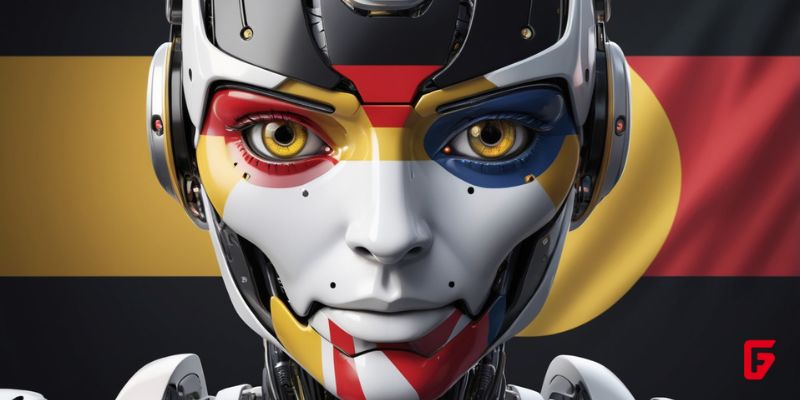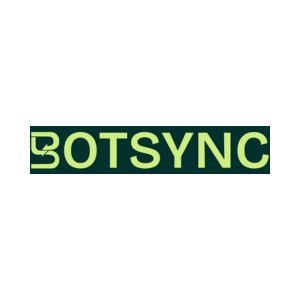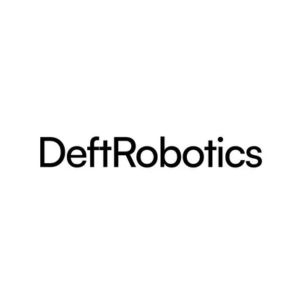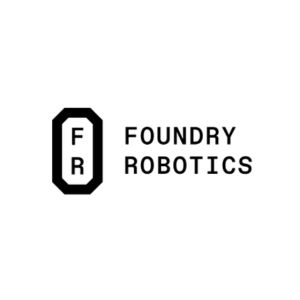Startups & Business News

Alibaba’s unveiling of the Quark AI Glasses at the World Artificial Intelligence Conference (WAIC) in Shanghai signals a pivotal shift in the smart glasses arena. For the first time, the Chinese tech titan is stepping directly into a market long dominated by players like Meta and Xiaomi. These glasses, powered by Alibaba’s Qwen large language model and the intuitive Quark AI assistant, are set to debut in China by the end of 2025, making them one of the most anticipated tech launches this year.
What Sets Quark AI Glasses Apart?
What makes these glasses a standout in a crowded market is their seamless integration with Alibaba’s digital ecosystem. Equipped with the Snapdragon AR1 chip and a dual-operating system setup, these glasses are engineered for performance and all-day practicality. The design is strikingly lightweight and slim—reportedly, the arms are 40% thinner than most industry counterparts, blending comfort and style without compromise.
Key features include:
Real-time translation for international travel and business.
Hands-free calling and music streaming.
Live transcription of meetings.
Built-in camera for first-person capture.
Alipay payments and price comparison on Taobao.
Navigation via Amap, with voice-command access to Alibaba’s entire suite of services.

Market Positioning: More Than Just a Gadget
Alibaba isn’t just releasing a new gadget—it is throwing down the gauntlet. Unlike Meta’s Ray-Ban collaboration, which leans into entertainment and social media, Quark AI Glasses are crafted for professionals, travelers, and tech enthusiasts who want enhanced daily productivity. Business users, in particular, will appreciate features like real-time meeting transcriptions and instant translation—addressing common challenges in today’s fast-paced digital economy.
By leveraging its ecosystem synergy, Alibaba ensures users can scan QR codes to make payments, compare prices instantly, or get directions, all while barely lifting a finger. This level of integration isn’t just convenient—it’s transformative for users accustomed to living inside Alibaba’s commerce and services universe.
The Competitive Landscape: Chinese Titans Face Off
Alibaba’s launch heats up an already volatile sector. Domestic competitors like Xiaomi and Xreal, as well as international giants like Meta, are vying for leadership in this next computing frontier. Recent market data shows AI smart glasses are on an explosive growth trajectory, with global sales expected to reach 5.5 million units by year-end 2025—a 216% year-over-year surge. The Chinese market, in particular, stands out for its rapid adoption and strong emphasis on enterprise applications.
The $53 Billion Bet on AI
Beneath the hardware, Alibaba’s broader strategy is even more ambitious. Backed by a $53 billion AI infrastructure investment, the company aims to not only compete—but lead—by aligning its cloud, ecosystem, and AI hardware for dominance in both local and global markets. Early financial signals are promising: Alibaba’s stock is up over 40% this year, buoyed by investor confidence in its multi-year AI roadmap and the anticipated impact of the Quark AI Glasses.
A Strategic Leap into Wearable Intelligence
The unveiling of the Quark AI Glasses marks Alibaba’s boldest hardware play yet. With practical features, deep integration into daily routines, and an ambitious investment in AI, Alibaba is positioning itself to become the vanguard of smart eyewear adoption—not just in China, but worldwide. If it can deliver on its promises, the Quark AI Glasses will do more than challenge the current leaders—they just might redefine how we experience technology throughout our day.

futureTEKnow
Editorial Team
futureTEKnow is a leading source for Technology, Startups, and Business News, spotlighting the most innovative companies and breakthrough trends in emerging tech sectors like Artificial Intelligence (AI), Robotics, and the Space Industry.
Discover the companies and startups shaping tomorrow — explore the future of technology today.
Most Popular
Trending Companies
Latest Articles

AI-Driven Operational Excellence: How Leaders Scale Ownership, Discipline, and Continuous Improvement in 2026
In 2026, AI scales operational excellence fundamentals—clear ownership, disciplined execution, and continuous improvement—letting leaders focus on outcomes while systems handle

VoiceLine raises €10M to scale voice AI for enterprise frontline teams
Munich-based VoiceLine has closed a €10M Series A round to grow its voice AI platform for frontline sales and service

AI-Driven Logistics & Distribution Transformation: From Insight to Scalable Impact
AI is redefining logistics transformation—from network design to real-time execution. This article explores how data-driven insight, intelligent automation, and scalable
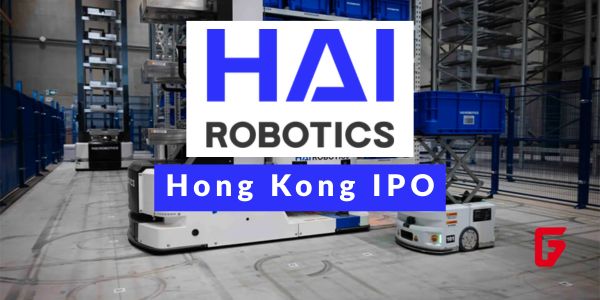
Hai Robotics Hong Kong IPO: From Startup Funding to Warehouse Robot Leader
Shenzhen’s Hai Robotics, pioneer in ACR warehouse robots, files for HK IPO after raising over $500M in funding rounds led

AI-Enabled Process Engineering & Continuous Improvement: Designing Systems That Learn
Explore how AI transforms process engineering and continuous improvement into self-learning systems. This article explains how organizations can design operations
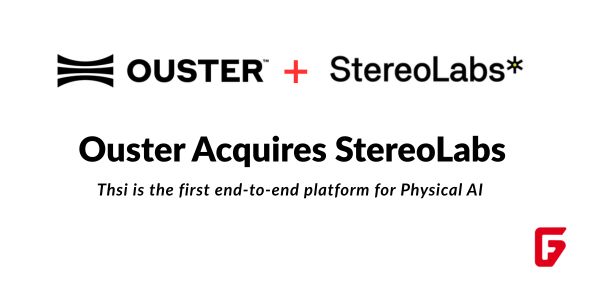
Ouster Acquires StereoLabs: Unified Physical AI Sensing Platform Launches
Ouster’s $35M StereoLabs acquisition fuses lidar and ZED cameras into end-to-end Physical AI sensing. Founders Cecile Schmollgruber and team drive

Bretton AI Lands $75M Series B Funding to Scale AI Agents for Financial Crime and AML/KYC Compliance
Bretton AI’s $75M Series B modernizes AML KYC compliance via AI agents, slashing staffing costs for banks and fintechs like

Axiom Space Raises $350M to Build Commercial Space Station and NASA Spacesuits
Axiom Space has locked in a fresh $350M raise to push its commercial space station and NASA lunar spacesuits toward
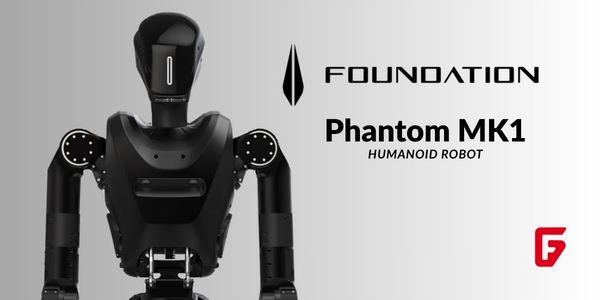
Foundation Humanoid Robot: Phantom MK1 Overview, Military Plans, and Factory Deployments
Foundation’s Phantom MK1 humanoid robot hits factories and eyes military use. Check specs, pilots, and bold 50k goal by 2027.
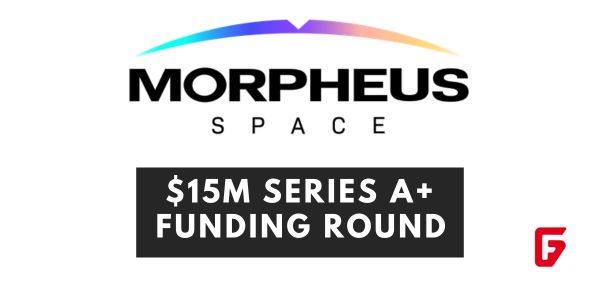
Morpheus Space Raises $15M for GO-2 Electric Propulsion Mass Production
Morpheus Space secures $15M funding for GO-2 electric propulsion mass production. Learn how this boosts satellite mobility with efficient thrusters.

Designing Warehouse Automation Through Operating Strategy
Discover how leading companies design warehouse automation through integrated operating strategies. Learn how AI, robotics, and adaptability drive efficiency and
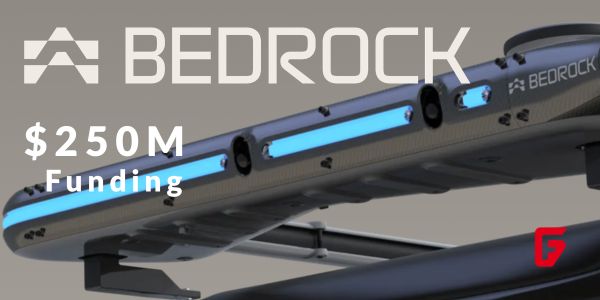
Bedrock Robotics Raises $270M Series B: Autonomy for Construction Boom
Exciting news: Bedrock Robotics just scored $270M in Series B to power up autonomous machines on job sites. Led by
futureTEKnow is focused on identifying and promoting creators, disruptors and innovators, and serving as a vital resource for those interested in the latest advancements in technology.
© 2026 All Rights Reserved.
![Discover the top 10 AI companies in Germany [1st Edition], revolutionizing industries with cutting-edge technology and innovations.](https://futureteknow.com/wp-content/uploads/2025/02/Top-10-AI-Companies-in-Germany-Leading-the-Tech-Revolution-futureTEKnow.jpg)
